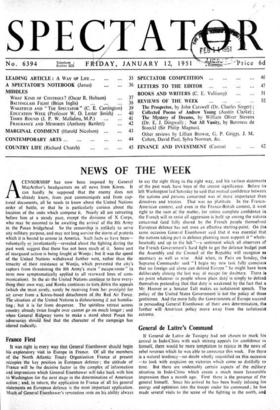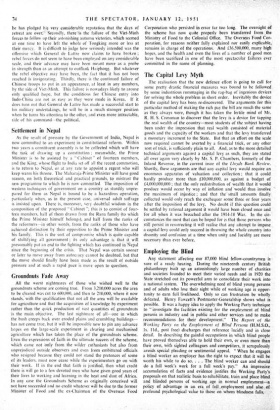General de Lattre's Command
If General de Lattre de Tassigny had not chosen to mark his arrival in Indo-China with such stirring appeals for confidence in himself, there would be more temptation to rejoice in the news ot rebel reverses which he was able to announce this week. For there is a natural tendency—no doubt wholly unjustified on this occasion —to look with suspicion on victories which come so dutifully to time. But there are undeniably certain aspects of the military situation in Indo-China which create a much more favourable impression than a month ago. First there is the presence of the general himself. Since his arrival he has been busily infusing his energy and optimism into the troops under his command ; he has made several visits to the scene of the fighting in the north, and he has pledged his very ,considerable reputation that the days of retreat are over. Secondly, there Is the failure of the Viet-Minh forces to follow up their astonishing autumn victories, which seemed at one time to have left the whole of Tongking more or less at their mercy. It is difficult to judge how seriously intended was the offensive which General de Lattre now claims to have broken ; rebel forces do not seem to have been employed on any considerable scale, and their advance may have been meant more as a probe in strength than as an attempt to outflank Haiphong. But whatever the rebel objective may have been, the fact that it has not been reached is invigorating. Thirdly, there is the continued failure of Chinese troops to put in an appearance, at least in any numbers, by the side of Viet-Minh. This failure is nowadays likely to arouse
only qualified hope, but the conditions for Chinese entry into Indo-China arc not as easy as they were made in Korea. If it
does turn out that General de Lattre has made a successful start to his military undertakings, he will be in a much stronger position when he turns his attention to the other, and even more intractable, side of his command—the political.



































